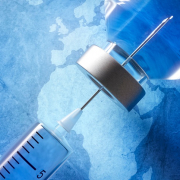Patent System Needs Adjustment to Harmonize with Open Science Objectives, European Academies say
A new ALLEA statement examines the current patent system in the context of the ideals and objectives of open science and recommends, among others, the introduction of grace periods in patent applications to make knowledge open as early as possible.
In a new statement published today, ALLEA, the European Federation of Academies of Sciences and Humanities, advocates for the harmonisation of the patent system with open science. The academies urge policymakers to introduce a grace period of at least one year to ensure rapid open publication of research findings.
In addition, the authors conclude that patent income must not be seen as a substitute for public funding and patent activity should be used with great caution as an evaluation metric in assessing the performance of research institutions, projects, and individuals.
The statement, prepared jointly by ALLEA’s Open Science Task Force (OSTF) and the Permanent Working Group Intellectual Property Rights (PWGIPR), analyses the current debate on the possible synergies and perceived tensions between open science and patent protections.
The publication explores these two apparently contradictory views on research policy. On the one hand, a utilitarian view underlines the value of research as a key pillar of innovation in modern societies, wherein patents are considered important tools to valorise research findings. At the same time, an increasingly vocal open science movement advocates for knowledge generated through research to be considered as a global common good to be shared as openly and as rapidly as possible.
The authors consider that “there is no fundamental opposition between open science and protection of IPR; ideas can be freely shared even if their commercial use is subject to restrictions, and indeed this is only possible because of patent law. However, there are clearly operational problems with the way the patent system is currently structured.”
With the right adaptations to existing patent law, knowledge valorisation does not need to prevent early sharing of research findings. On the contrary, “a reformed patent system is essential to the widespread adoption of open science, and could even incentivise it”, states Luke Drury, Chair of the ALLEA Open Science Task Force.
In its conclusions, the statement recommends:
- The introduction of a carefully formulated grace period of at least one year in patent applications to allow open publication prior to obtaining protection.
- The existing research and experimentation exceptions should be strengthened and broadly interpreted to underpin the free non-commercial use by researchers of knowledge disclosed in patents.
In addition, it notes that:
- While patent income and license fees may play a useful role in supplementing the budgets of public research bodies and the salaries of some individuals, this must not be seen as a substitute for public funding.
- Patent activity should be used with great caution as an evaluation metric in assessing the performance of research systems, bodies, and individuals. Incentivising the accumulation of non-performing patents is counterproductive and a waste of resources.
- The value of curiosity-driven open research in publicly funded research and education bodies needs to be better acknowledged as the bedrock on which innovation and entrepreneurial activity is built, even if it is hard to quantify and valorise.
- Related to the last point, the role of distributed communities and teams of researchers needs to be better recognised. The emphasis in patent law on individual inventors is unhelpful in this regard and does not properly reflect how science operates.









